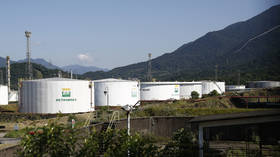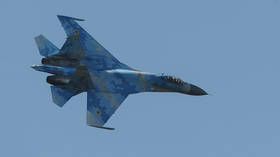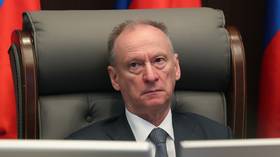Russia resumes oil exports to BRICS partner

Russian oil producers exported 84,400 metric tons of crude to Brazil last month, marking the highest volume shipped from Russia to that country since June 2010, when the South American nation bought in 117,800 metric tons, RIA Novosti reported on Sunday, citing Brazilian customs data.
In monetary terms, exports of crude to Brazil in September, the first shipments after a two-year halt, totalled $48 million. In August 2021, Brazilian refineries imported 42,100 metric tons of crude from Russia, worth $16.6 million.
At the same time, Brazil’s imports of Russian petroleum products saw a month-over-month decline of 22% to 717,300 metric tons, while the value of the shipments dropped by 13% to $593.8 million. The slump comes amid Moscow’s latest move to temporarily restrict certain fuel exports, introduced to stabilize the domestic market.
Moscow’s ban on cross-border sales of gasoline and diesel came into force on September 21. Earlier this week the restrictions were relaxed and the government allowed exports of diesel, but a ban on gasoline shipments out of Russia remained in place.
Russia has been diversifying its energy exports over the past couple of years against a backdrop of Western sanctions, introduced against Moscow over the escalation last year of its long-running dispute with Ukraine.
Brazil, along with India and China, emerged as one of the active buyers of Russian crude after the European Union joined a Russian oil embargo in February. However, unlike Russia’s partners in Asia, Brazil is a major oil producer and exporter that occasionally purchases crude to cover domestic refining needs.
The EU, the G7 nations, and Australia introduced a $60-per-barrel price ceiling on Russian seaborne crude. The measure bans Western firms from providing insurance and other services to shipments of Russian crude, unless the cargo is bought at or below this set price. The mechanism was intended to force Russia to continue exporting high volumes of oil to prevent global prices from spiking, but also to reduce the revenue that Moscow generates selling its crude.
In April, Russian Deputy Prime Minister Alexander Novak said that Moscow has redirected to Asian markets nearly 20% of the oil that had previously been supplied to the EU.
For more stories on economy & finance visit RT's business section













